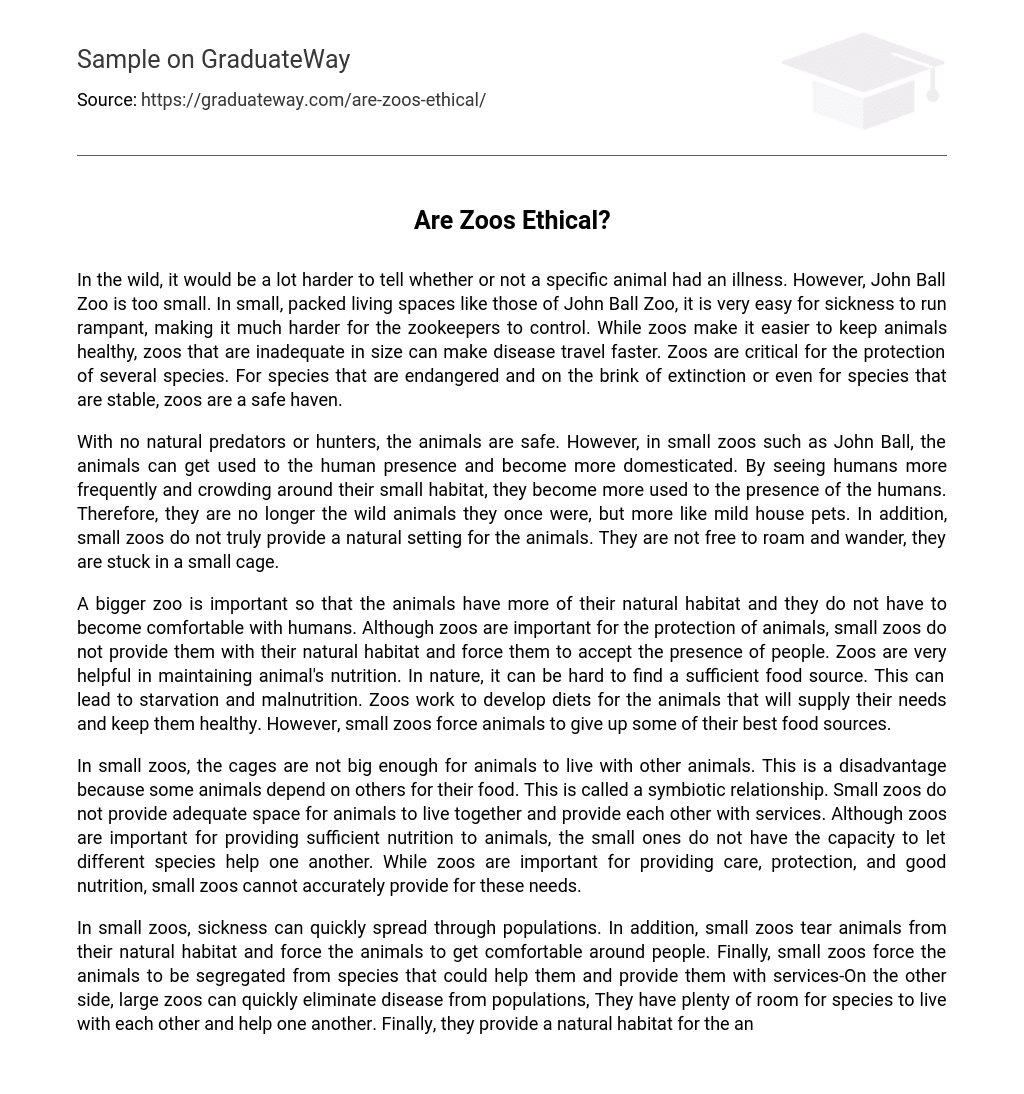In the wild, it would be more challenging to determine if a particular animal is sick. However, at the John Ball Zoo, due to its small size, it becomes easier. The cramped living spaces in small zoos like John Ball Zoo make it convenient for diseases to spread rapidly, posing a greater challenge for zookeepers to control. While zoos facilitate the health of animals, insufficiently sized zoos can contribute to faster disease transmission. Zoos play a vital role in conserving numerous species. Whether it is for endangered species on the verge of extinction or stable populations, zoos provide a secure sanctuary.
Despite the absence of natural predators or hunters, the animals are safe. However, in smaller zoos such as John Ball, the animals may become familiar with humans and display domesticated behaviors. With increased human interactions and limited habitat space, they adapt to human presence. As a result, they lose their wild instincts and instead resemble calm household pets. Moreover, small zoos do not provide a truly natural environment for the animals; they are confined to small cages rather than being able to freely roam and explore.
A larger zoo is necessary to ensure that animals can exist in a more natural habitat and are not forced to adapt to human presence. While smaller zoos fail to replicate the animals’ natural environment and impose the presence of humans upon them, larger zoos play a crucial role in safeguarding animals. Additionally, maintaining the nutrition of animals is vital for their well-being. In the wild, finding an adequate food source can be challenging, leading to starvation and malnutrition. Zoos work on developing diets that meet the nutritional needs of animals and keep them in optimal health. However, smaller zoos restrict animals from accessing their preferred food sources.
Small zoos lack sufficient space in their cages, preventing animals from forming symbiotic relationships and relying on each other for food. This limitation hinders their ability to coexist and provide services to one another. While zoos are important for ensuring animals receive proper nutrition, small zoos cannot facilitate interactions between different species to support each other effectively. Thus, although zoos have a vital role in providing care, protection, and nutrition, small zoos face difficulties in meeting these requirements adequately.
In small zoos, diseases can easily spread among populations and animals are taken from their natural habitat to become accustomed to humans. Additionally, small zoos separate animals from potential companions and necessary services. Conversely, large zoos efficiently control diseases, offer ample space for species to coexist and assist each other, and provide a natural environment, eliminating the need for constant pacing.





